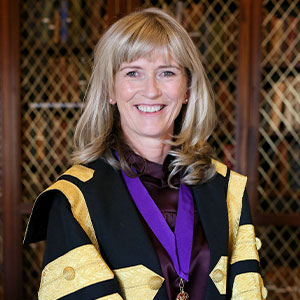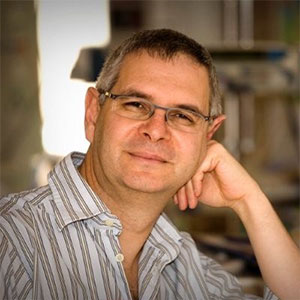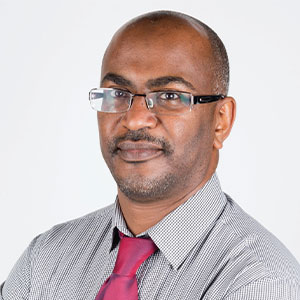A number of experienced consultants share their advice for newly appointed consultants.

Prof Mary Horgan, President of the RCPI and Consultant in Infectious Diseases
“Teamwork and collaboration are really important skills to learn, it’s about engaging with other specialties and healthcare professionals and those in management and policy roles. It is important to understand how to engage with your colleagues, how you can bring them along, how you can influence them, how you set goals and strategies to ensure that whatever you are delivering is in the best interests of your patients. It is that skillset that is really, really important when you are advocating for your patients, which is a key component of your work as a consultant.
“A network is a really important thing to have. We take it for granted the worldwide network that we have available to us here in Ireland. It is important to make those connections and leverage that invaluable resource, both from an educational and research point of view.
“Integrity and independent thinking are really important features of leadership. It is about doing the right thing and one thing I have learned from the pandemic, is that if you follow the science, you won’t go too far wrong. I also think it is essential to listen to those that are on the frontline, because they are going to be the first to sense the ground shifting, for better or for worse.”

Dr Allan Goldman, Chief Medical Officer, Children’s Health Ireland
“Look at your career in different phases –maybe five-year blocks. For the first two-to-five years, I’d advise new consultants to consolidate clinical practice and skills. The jump to being a consultant is a big jump as suddenly the buck stops with you – the level of responsibility changes. The way people are looking at you is different. You are the person who is going to give the answer.
“Building relationships could not be more important. You need to build relationships with colleagues in your team and other medical teams, with the nursing team and with hospital management. You will need these people in both your clinical and non-clinical work in order to give the best level of care to patients.
“You will never know everything – don’t pretend you do. Life is continuous learning. Be humble. Asking for help is not a sign of weakness, it’s a sign of strength. Whether it is with a clinical issue or if you have conflict with somebody on the team or if it’s a mental health issue – Ask for help early… don’t wait.
“You will sometimes get it wrong like everybody else. Having good relationships and encouraging people to speak up is going to enhance patient safety and that is in everybody’s interest.
“Learn to listen. There is no point in encouraging people to speak up, if you don’t listen to them.
“Try to think more broadly that just your clinical career – even from an early career stage. It is very easy to see the world only from your perspective… think about the wider management perspective and the wider system in the hospital. We can get locked into our own world very easily.
“Once you have settled into your clinical work as a consultant, think about what is going to be your interest or passion outside of the clinical work – it could be quality and safety, or as a researcher, or an educator or going down the management route. It is always healthy to have your job and another interest that is a bit different and that drives you.
“Finally, think about finding a mentor outside of your area, that you can speak to, as a coach.”

Mr El Rasheid Kheirelseid, Consultant Vascular Surgeon, Beaumont Hospital
“The biggest challenge when you become a consultant is that you are not only responsible for your patients, but you are also responsible for your team. Motivating the team, getting them on board, ensuring effective teamwork and giving them space so that they feel they have ownership of something. You can’t control everything.
“A core challenge when you become a consultant is that you can’t just have tunnel vision into a patient’s medical problems. For me the easiest part was doing the surgery. However, you have to consider the whole picture and what is going to happen to the patient afterwards – so that they can lead a normal life and be productive person in the community. The decision making here is complex. There can often be conflict during meetings about the best approach for the patient. This is the type of thing that will keep you awake at night.
“I don’t think doctors are prepared when they take up a consultant role. Your training prepares you for the clinical part, but it does not prepare you for the rest – which is more challenging and demanding.
“Some people fear that diversity will bring conflict, but actually diversity has a positive impact on the community and clinical practice. Having a diverse team with people from different cultures and races is a good thing from both a clinical and cultural point of view.
“When you are exposed to other views, you will have the opportunity to develop a more mature view which is more useful to the team and your organisation.
“I am from Sudan and went to medical school in Sudan. We have a lot of pathologies that are not seen much in Ireland. This has been of benefit to my team in Ireland. Having team members with a different exposure to you is helpful to your team and your patients. We are lucky to have a community with diverse backgrounds in Ireland.
“Your role as a consultant is to work hard to understand and to respect the diversity of your team and their cultures. By doing that you can earn the respect of your team as a leader and get the most out of them.
“Having discussions with your team members about, for example, their homeland or saying simple things like “happy Eid” will show them that you care about them as humans. That will create a healthy environment in the unit which will be reflected in the team performance.”
This article was submitted by the RCPI.
Dr Allan Goldman and Mr El Rasheid Kheirelseid are speakers on the Certificate in Essential Leadership for New Consultants through the RCPI – commencing January 2023.
Find out more:
https://courses.rcpi.ie/product?catalog=Certificate-in-Essential-Leadership-for-New-Consultants












Leave a Reply
You must be logged in to post a comment.